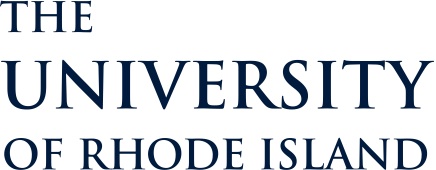University of Rhode Island scientist Fatemeh Akhlaghi sympathizes with transplant recipients who must take anti-rejection drugs for the rest of their lives and submit to painful and inconvenient blood tests several times a week. That's why she is researching the use of saliva as an alternative way to monitor medication levels and their potential effects on the body. Such a sample could be obtained at home, without the need for needles and trips to hospitals, clinics or doctors' offices.
But it wasn't until URI received an additional $1.6 million from the federal government for the Biomedical Research Infrastructure Network (BRIN) program that she was able to fully staff and operate her lab.
The money from the National Institutes of Health was awarded last fall as a supplement to an original $6 million grant received by URI in September 2001 to establish a statewide network to stimulate biomedical research and develop a cadre of senior and junior scientists that could compete for NIH grants.
When the original grant was awarded to Professor Zahir Shaikh, chair of the Department of Biomedical Sciences in URI's College of Pharmacy, and Associate Professor of Biomedical Sciences Nasser Zawia, the network had 37 researchers from six Rhode Island universities and colleges. The network has now grown to include 46 researchers, with a total of more than 100 individuals working in such areas as cancer generation, effects of toxic chemicals on reproduction, drug metabolism, behavior change and identification of natural products for treatment. In addition, Salve Regina University has joined the network.
The supplemental award provides funding for additional faculty at participating institutions, summer pay for undergraduate and graduate research assistants, eight pilot projects and more instruments for labs at URI and Providence College.
"Twenty three states and Puerto Rico applied for additional funding and only 10 received it," said Zawia of the highly competitive process.
Akhlaghi is one of the new junior researchers to the group funded through the supplemental grant. When she arrived two years ago, the University supported her purchase of a liquid chromatograph tandem mass spectrometer to measure anti-rejection drugs in minute amounts. "But without the grant money from the network, I would have been unable to purchase additional equipment, software and supplies and employ two graduate students to run multiple tests," she said.
Her focus is making sure kidney, heart, lung and liver patients get the right drug at the best dosage. Akhlaghi, who earned her doctorate at one of the leading transplant centers in Sydney, Australia and who worked at Cambridge University's world-renowned transplant center, is now collaborating with Rhode Island Hospital's Kidney Transplant Center, which is one of the top transplant centers in the region.
"Immunosuppressant (anti-rejection) drugs are very toxic; too much of them can damage other organs and too little can lead to rejection of the transplanted organ," Akhlaghi said. "That's why frequent monitoring through blood tests is necessary. Now, we are researching novel approaches for monitoring these medication levels."
One of the drugs is cyclosporin, which can cause cancer, kidney problems, increased blood pressure and increased risk of infection.
She and grad student Anisha Mendonza are getting close to measuring cyclosporin in saliva for optimum dosages. "This is very time consuming research, but it can have major benefits for society," she said. "If we can develop solid measurements, obtaining a useful sample will be as simple as spitting in a cup at home."
Akhlaghi said measuring cyclosporin in saliva might be easier and less expensive than measuring the drug's levels in blood "and it appears that it will be more relevant to clinical use than the blood level because it represents the active (free) concentration of a drug."
Her other graduate student, Chirag Patel, is examining mycophenolic acid, a newer immunosuppressant, which has been in use for about five years. Little is known about what dosage levels give optimum results in different groups of patients, such as diabetics.
His project could be especially important to transplant patients with diabetes because they process drugs differently. "Nearly 30 percent of transplant patients are diabetics," Akhlaghi said.
Both graduate students are working with blood and saliva samples from Rhode Island patients.
"We want to reduce the likelihood of adverse drug reaction in these patients," Patel said.
Like cyclosporin, it can increase risk of infection, and cause anemia, nausea and vomiting.
Biomedical Research Infrastructure Network background
URI was selected by NIH's National Center for Research Resources to develop a statewide network of biomedical researchers to compete for National Institutes of Health grants and to increase the biomedical research manpower in the state. The network will draw from such disciplines as toxicology, pharmacology, chemistry, biology, pathology, psychology, computer science, mathematics, biomedical engineering and physical education.
The network consists of faculty members from URI, Rhode Island College, the Brown Medical School, Roger Williams and Salve Regina Universities and Bryant and Providence Colleges. Senior faculty from URI and Brown serve as mentors for junior faculty focusing on various biomedical research topics.
According to the Rhode Island Economic Development Corp., there are 99 biotechnology and biomedical firms in Rhode Island employing more than 3,400 individuals. The companies range from large pharmaceutical companies with operations in the state, including Wyeth Pharmaceuticals and Immunex Corp., to smaller businesses involved in biomedical research, biomedical engineering, manufacturing of medical devices and supplies and firms that make packaging to handle medical and hazardous wastes.
The grant is also funding development of a central research instrumentation facility at URI that will be open to those within and outside the grant network and will serve as a resource for the state to further biomedical research. Researchers will have access to state-of-the-art equipment under the supervision of trained operators. The new facility will be housed in Fogarty Hall, the home of the College of Pharmacy.
In addition to a centralized facility at URI, researchers will have access to research laboratories at Brown.
